The 10th National Academic Forum for PhD Students in Finance/Public Economics of the 12th Postgraduate Academic Forum of ZUEL was successfully held in North 403 of Wenquan Building at 9:00 on 20th November 2021. It aims to build a platform for academic exchange and promote the development and innovation of the discipline of finance/public economics. The event was held in a combination of online and offline mode, and was broadcast live using web video. Outstanding PhD students from Tsinghua University, Renmin University of China, Wuhan University, Huazhong University of Science and Technology, Shanghai University of Finance and Economics, Central University of Finance and Economics, and Zhongnan University of Economics and Law were invited to attend the online conference. The event was opened by Professor Xue Gang, Deputy Dean of the School of Public Finance and Taxation.
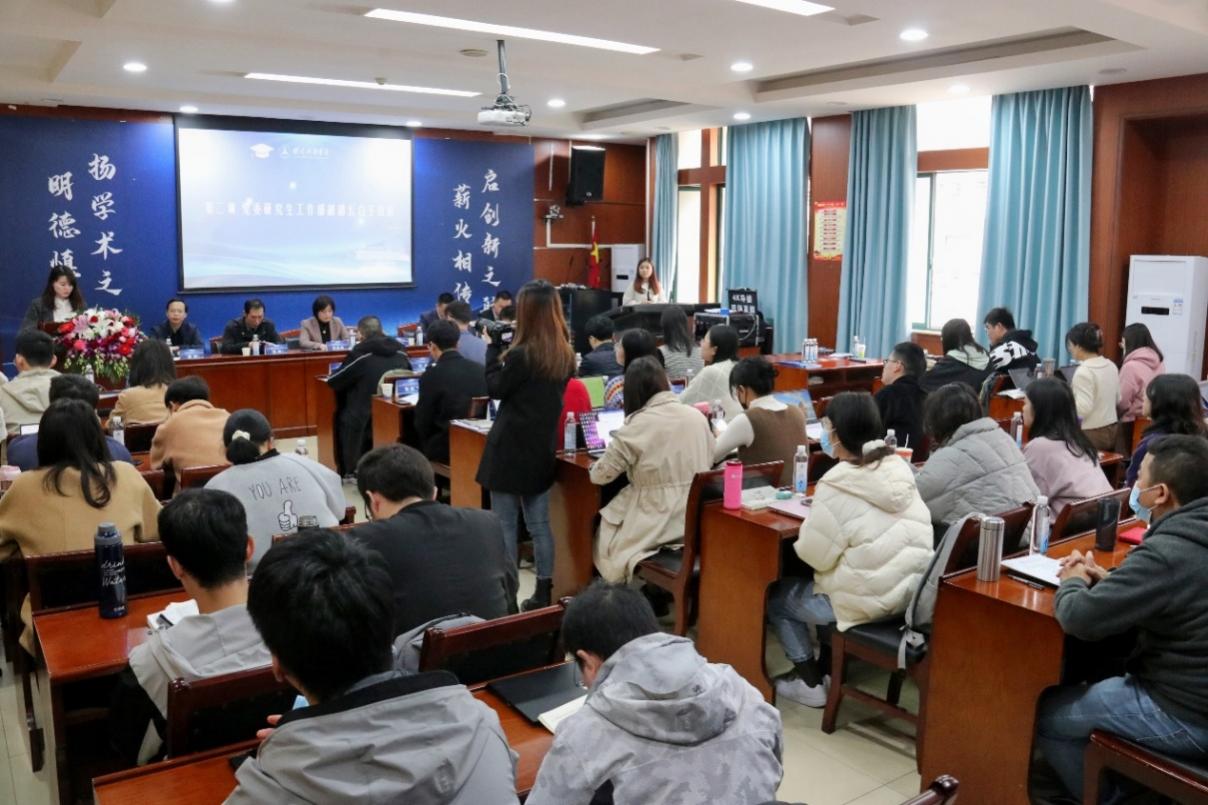
  The forum was attended by Prof. Gong Feng, Director of the Department of Finance and Doctoral Supervisor of the School of Economics and Management of Wuhan University, Bai Yu, Deputy Director of the Postgraduate Work Department of the Party Committee of Zhongnan University of Economics and Law, Yuan Guijun, Secretary of the Party Committee of the School of Public Finance and Taxation, Gala Ning, Deputy Secretary of the Party Committee of the School of Public Finance and Taxation, Prof. Tian Binbin, Assistant Dean of the School of Public Finance and Taxation, Prof. Zhao Ying, Associate Professor of the School of Public Finance and Taxation, Liu Qing, Assistant Professor of the School of Public Finance and Taxation, Dr Wan Qian, a full-time researcher of IIDPF, as well as Ms. Yang Liu, Ms. Cheng Mingmei and Ms. Guo Sihan, who are responsible for postgraduate work in the School.
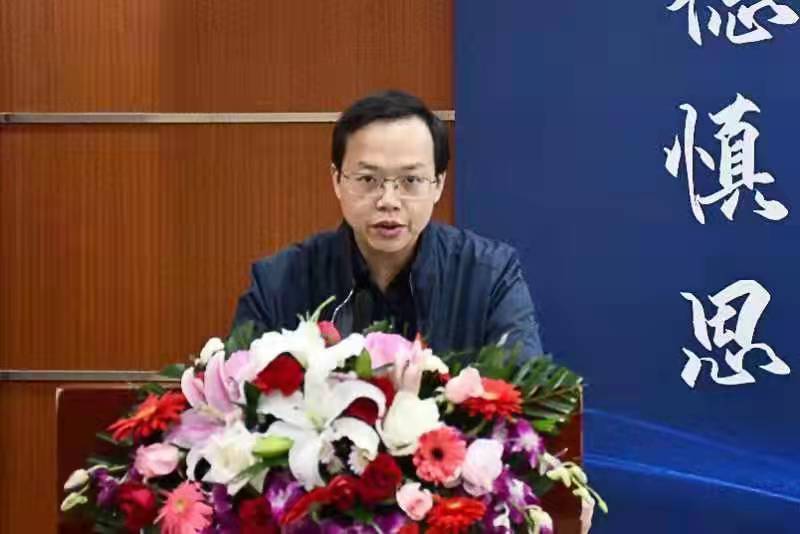
  The opening ceremony of the forum began with a speech by Bai Yu, Deputy Director of the Postgraduate Work Department of the Party Committee of ZUEL. She mentioned in her speech that at the conference celebrating the centenary of the founding of the Communist Party of China, General Secretary Xi Jinping pointed out that "China's youth should walk with the new era and shoulder the heavy responsibility, while young scholars should serve the country with their talents in the new journey of the century and shoulder the responsibility for the smooth and far-reaching development of our economy." To encourage young scholars to focus on the frontiers of their disciplines, explore and contribute to the development of finance and public economics, the School of Public Finance and Taxation has created the National Academic Forum for Doctoral Students in Finance/Public Economics, which has established a platform for academic exchanges among postgraduate students and conducted multi-dimensional and in-depth seminars and exchanges. She then expressed her best wishes for the forum and wished it every success.
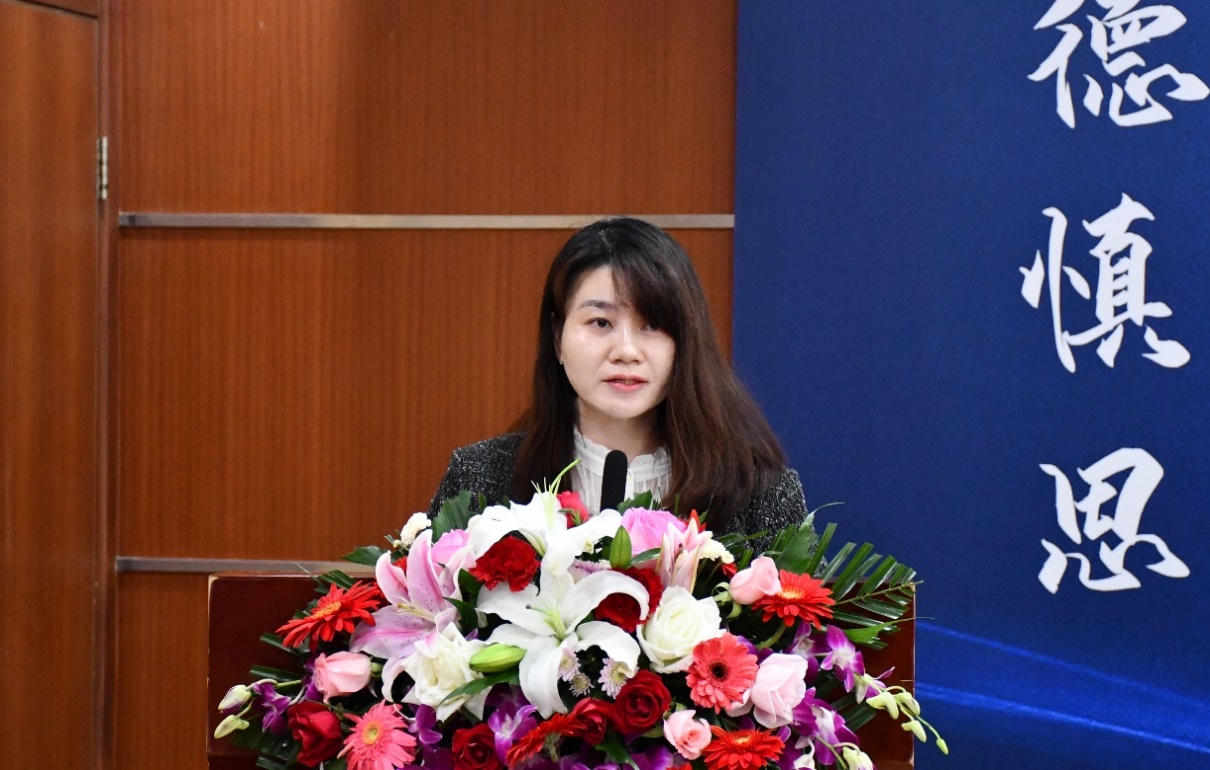
  The second item in the opening ceremony of the forum was the welcome speech by Yuan Guijun, Secretary of the Party Committee of the School of Public Finance and Taxation. Mr. Yuan Guijun firstly expressed her heartfelt thanks and welcome to all the guests present, and pointed out that as a world-class university, Zhongnan University of Economics and Law has always closely linked its development with the destiny of the country and the needs of the times, so as to deliver excellent talents to our country. The School of Public Finance and Taxation has always focused on the central task of talent cultivation and adhered to the cultivation concept of internationalization, strong characteristics and double first-class. In order to deeply understand and implement the instructions of General Secretary Xi Jinping at the National Conference on Postgraduate Education and deepen academic research and communication, the School of Public Finance and Taxation held this academic forum. The forum received many manuscripts from postgraduates in universities across the country, and selected some papers to be shared and presented at this conference. It is hoped that all participants will take this academic exchange event as an opportunity to strive to be pioneers of academic innovation.
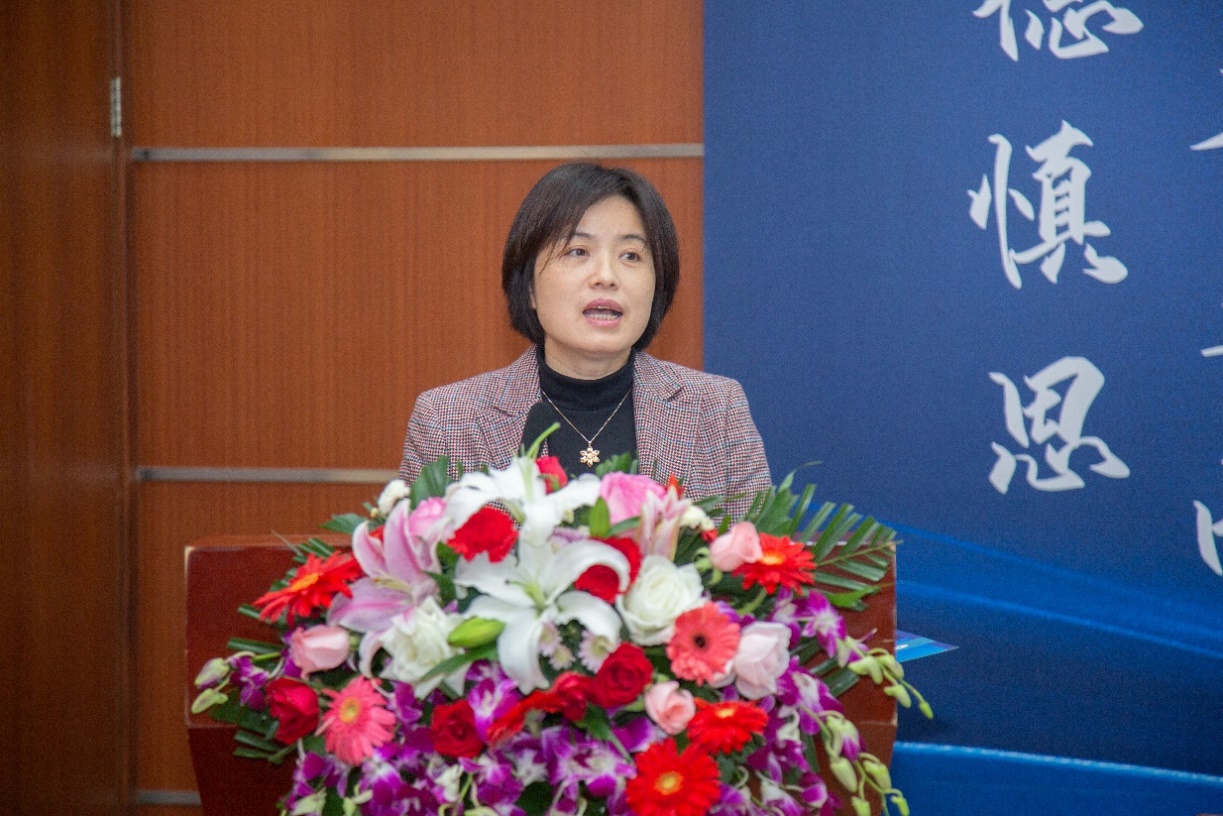
  The third session of the opening ceremony of the forum featured a speech by Wang Yixuan, a PhD student representing the School of Public Finance and Taxation. Wang Yixuan shared his insights from his three years of research and study experience. First of all, in terms of learning, learning must have breadth, depth and also temperature. In learning, one must not only dig deeper into one's own field of study and build up a strong foundation, but also dabble extensively in other fields, and see the economic significance behind the figures. Secondly, in research, one must face up to mistakes and challenge oneself. We should be open to the opinions of others when we encounter problems, and set high goals for ourselves to constantly pursue and surpass. Lastly, learning needs to be emotionally charged. As a young scholar, one should base oneself on Chinese practice, study actual Chinese problems and contribute to Chinese development solutions.
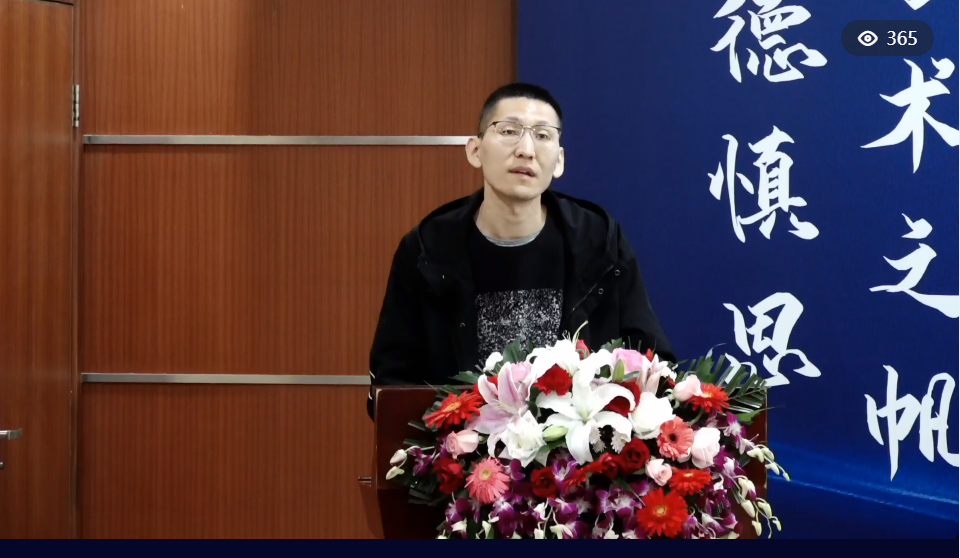
  After the opening ceremony, the forum entered into the keynote speech session delivered by Professor Gong Feng of Wuhan University and Professor Tian Binbin of Zhongnan University of Economics and Law respectively.
  To begin with, Professor Gong Feng from Wuhan University delivered a keynote speech on "Population Ageing, Cross-regional Population Mobility and County Economic Growth". Based on the obvious regional differences in China's population ageing process, Professor Gong Feng used the DID model to study the impact of population ageing on economic growth, using GDP, population ageing index and net migration rate as indicators. Professor Gong Feng pointed out that the negative impact of population ageing on economic growth weakened as the net migration rate increased, a finding that was more pronounced in the western region and in the 2010 sub-sample.
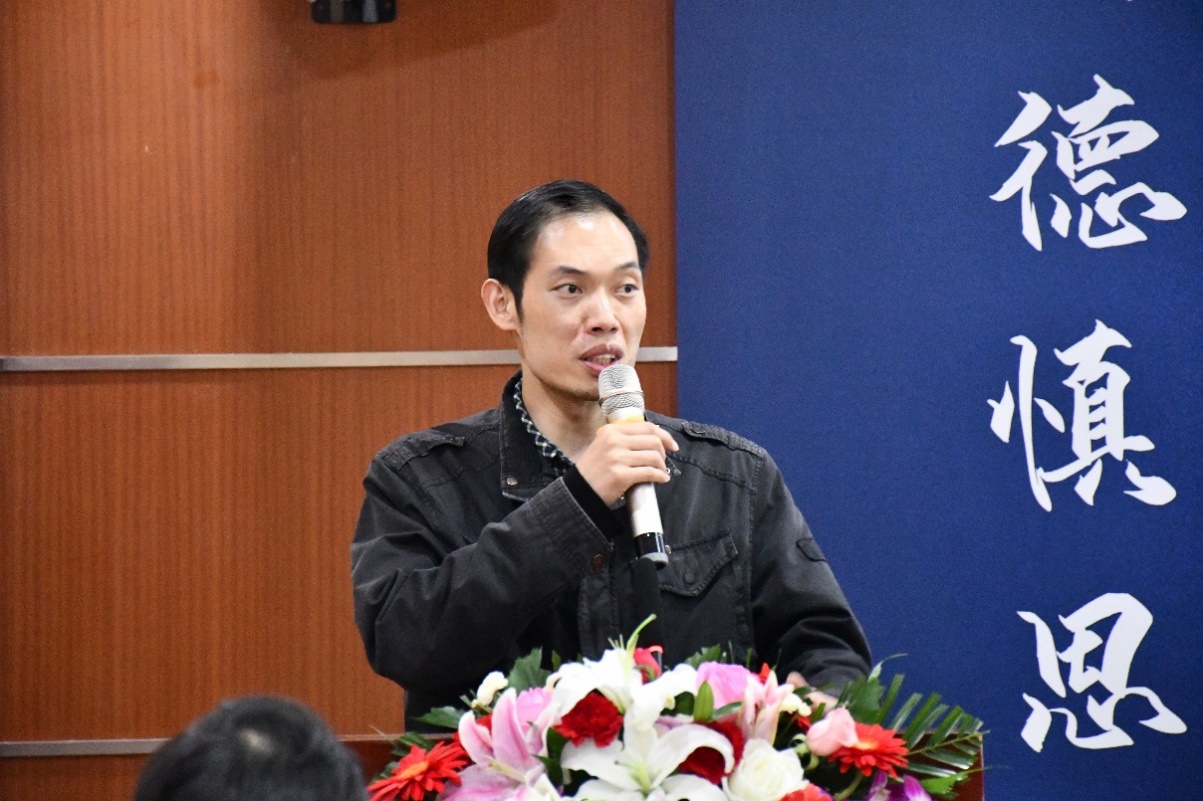
  Subsequently, Professor Tian Binbin from Zhongnan University of Economics and Law delivered a keynote speech on "Organisational Structure, Audit Strategy and Corporate Tax Evasion". He concluded that tax audits play a crucial role in the management of tax evasion, but due to the high cost of tax audits, the auditing strategy should be optimised in order to save auditing costs. The article takes the promotion of first-level audits as the policy context, selects a sample of enterprises subject to state taxation, and uses the actual tax evasion rate of enterprises as an indicator to assess the impact of optimising tax auditing strategies. The article concludes that organisational restructuring to match tax sources significantly improves inspection and collection efficiency.
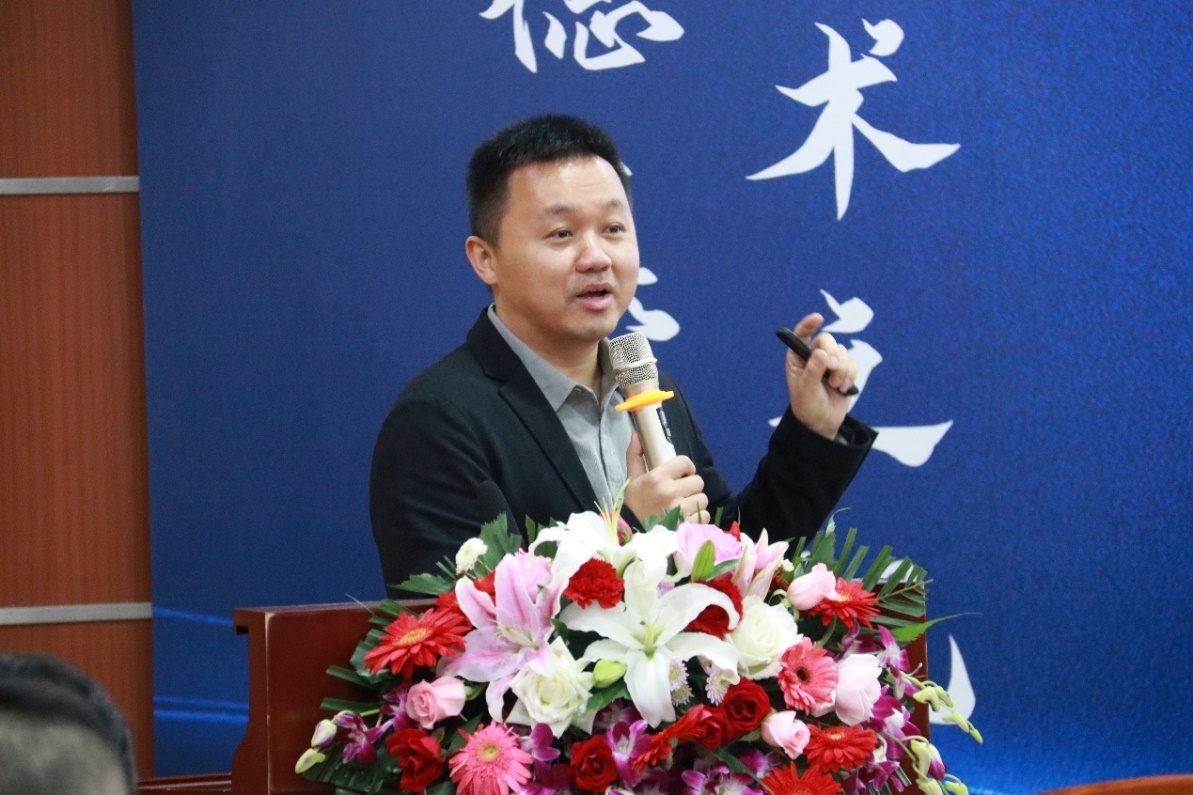
  The keynote speech was followed by three outstanding papers shared by Dr Zhang Ziyao from Renmin University of China, Dr Wu Qingyang from Tsinghua University and Dr Zhang Yongqi from Sichuan Agricultural University respectively.
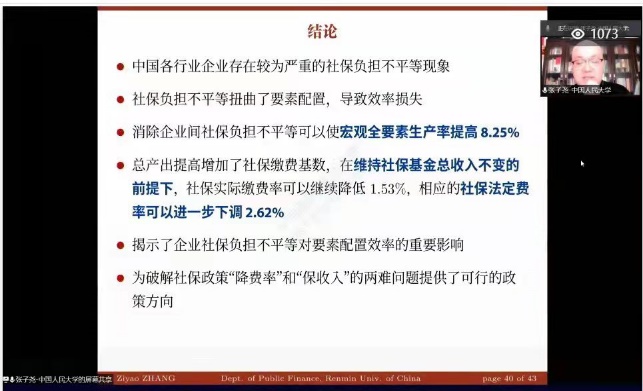
  The first paper was presented by Dr Zhang Ziyao from Renmin University of China, entitled "How much room is there for social insurance premium reduction policies - a perspective on inequality in social insurance burdens among enterprises and factor allocation efficiency". The paper pointed out that there is inequality in social security burdens among enterprises and that it is possible to reduce social security rates without reducing social security income by eliminating the distortions. Dr Zhang concludes that eliminating the inequality in social security between firms can lead to higher macro total factor productivity. At the same time, the effective rate of social security and the statutory tax rate are allowed to be lowered while ensuring that the total revenue of the social security fund remains largely unchanged. Assistant Professor Liu Qing of the School of Public Finance and Taxation commented on the paper. According to Professor Liu, the paper is instructive, but further improvements can be made on the phenomenon of social security differences caused within corporate industries and whether social security inequality is the result of corporate self-selection or exogenous factors.
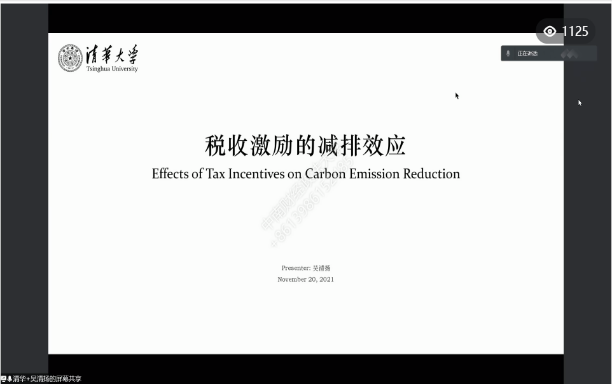
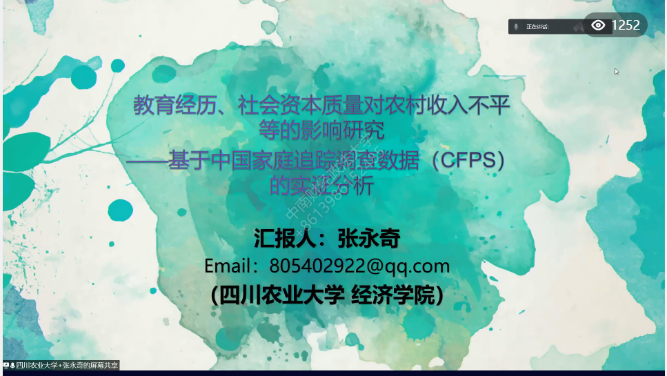
  This was followed by a paper entitled "The Emission Reduction Effect of Tax Incentives" presented by Dr Wu Qingyang from Tsinghua University. The paper obtained the following conclusions through DID empirical analysis: tax incentives cut the regional carbon emission intensity, removed institutional tax barriers to industrial restructuring, accelerated enterprises' phase-out of traditional machinery and equipment, and formed an effective disincentive to traditional energy consumption. Afterwards, Associate Professor Zhao Ying from the School of Public Finance and Taxation made suggestions on the paper from four aspects: analysis logic, data processing, empirical strategy and mechanism analysis.
  The paper "Research on the impact of educational experience and social capital quality on rural income inequality - an empirical analysis based on China Family Panel Studies (CFPS) data" was published by Dr Zhang Yongqi from Sichuan Agricultural University. The article takes rural income inequality as the background and finds that, after regressing the CFPS data, the improvement of farmers' educational experience makes the income gap between farmers widen, while the persistence of social capital quality is conducive to linking the widening phenomenon of rural income inequality and has a strong weakening effect. Therefore, in order to alleviate the phenomenon of rural income inequality, it is necessary to strengthen rural residents' investment in education and expand the ways of expanding the quality of social capital, as well as to pay more attention to the education level of low-income groups and the ways of improving the quality of social capital. IIDPF researcher Dr Wan Qian commented on the paper: the logic and research design of the article and the empirical analysis could be further improved.
  This concluded the morning agenda of the forum. The afternoon session was divided into five parallel forums, focusing on five themes: finance and people's livelihood, tax collection and management, taxation and corporate behaviour, public policy, fiscal decentralisation and local government behaviour. The atmosphere in each session was lively, with scholars engaging in in-depth exchanges around the relevant themes and actively expressing their insights.
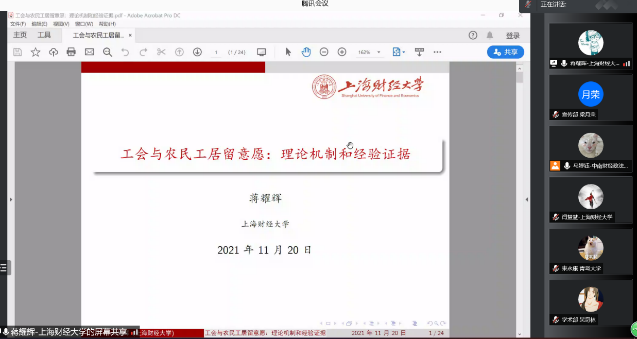
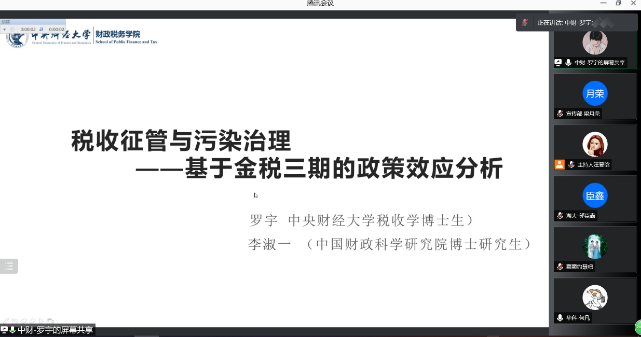
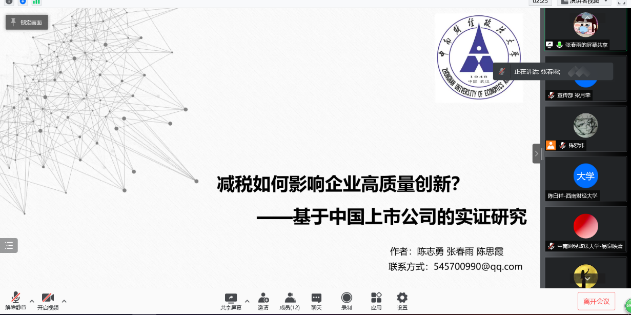
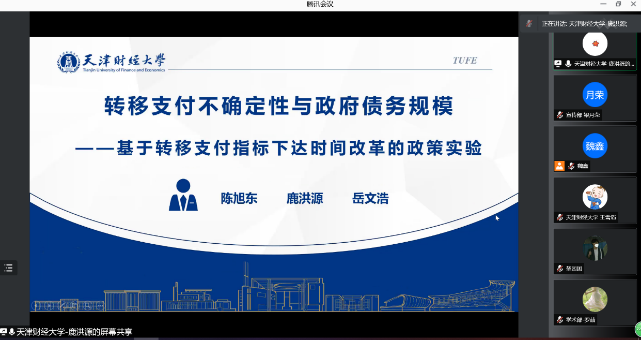
  Sub-forum 1 was themed on finance and people's livelihood. Dr Zhang Daoyuan from Renmin University of China, Dr Jiang Yaohui from Shanghai University of Finance and Economics, Master Shuang Yongkang from Qingdao University and Dr Yan Huihui from Shanghai University of Finance and Economics presented papers on related topics. Mr. Sun Yukun and other scholars made in-depth comments.
  Sub-forum 2 focused on the theme of tax collection and management. Dr Zhao Shuang from Southwest University of Finance and Economics, Dr He Fan from Huazhong University of Science and Technology, Dr Luo Yu from Central University of Finance and Economics and Master Guo Chenxin from Hunan University presented their papers on related topics. Prof. Yu Xiumei and other scholars made in-depth comments.
  Sub-forum 3 was themed on taxation and corporate behaviour. Dr Zhang Chunyu from Zhongnan University of Economics and Law, Dr Shao Qi from Central University of Finance and Economics, Dr Wang Xirui from Zhongnan University of Economics and Law and Dr Chen Yixin from Renmin University of China presented their papers on related topics. Professor Ni Juan and other scholars made in-depth comments.
  Sub-forum 4 featured the theme of public policy. Dr Xue Jingwen from Zhongnan University of Economics and Law, Dr Wang Xuedao from Tianjin University of Finance and Economics, Dr Lu Hongyuan from Tianjin University of Finance and Economics, and Dr Wang Yixuan from Zhongnan University of Economics and Law presented papers on related topics. Professor Liu Pan and other scholars made in-depth comments.
  Sub-forum 5 was on the theme of fiscal decentralisation and local government behaviour. Dr Li Jie from Zhongnan University of Economics and Law, Dr Li Hongtao from Dalian University of Technology, Dr Wang Hao from Wuhan University and Dr Fu Mengyuan from Zhongnan University of Economics and Law presented their papers on related topics. Professor Yan Weibo and other scholars made in-depth comments.
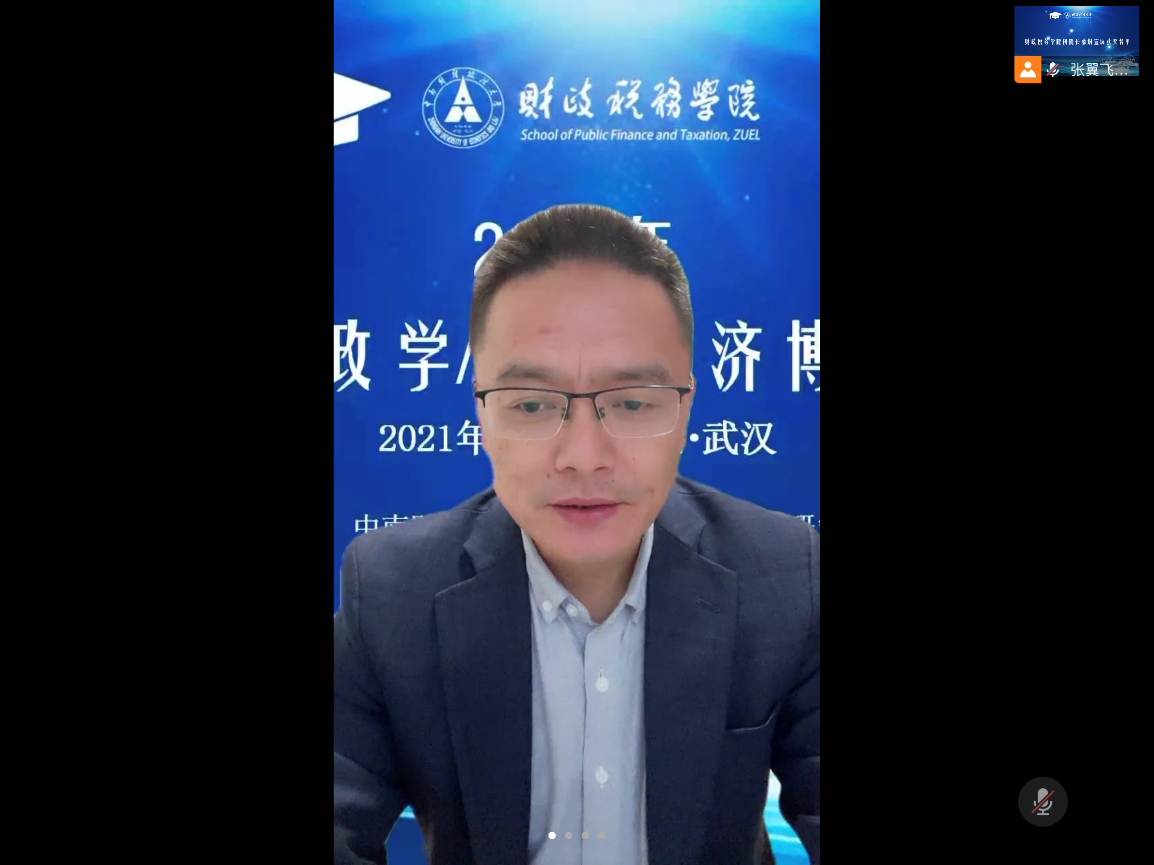
  The closing ceremony of the Forum was held at 4:30, hosted by Zhang Yifei, a PhD student at the School of Public Finance and Taxation, with Professor Xue Gang, Deputy Dean of the School of Public Finance and Taxation, reading out the list of winners. Mr. Da Ning, Deputy Secretary of the Party Committee of the School of Public Finance and Taxation, delivered the closing speech. Six award-winning papers were selected at the Forum, of which Dr Zhang Yongqi, Luo Yu and Xue Jingwen won the third prize, Dr Wu Qingyang and Wang Yixuan won the second prize and Dr Zhang Ziyao won the first prize. At this point, the 10th National Academic Forum for Doctoral Students in Finance/Public Economics was officially closed. It is expected that all PhD students will continue to come to Wuhan and to Zhongnan University of Economics and Law for the academic event in the next session as scheduled!
